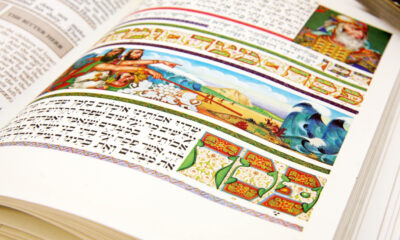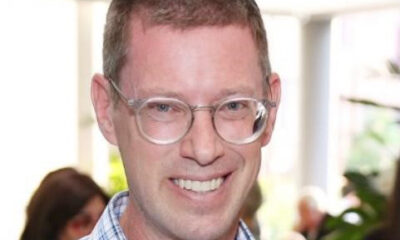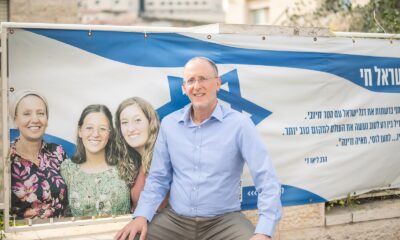
Religion

Hostages show us what true freedom is
When Agam Berger finally boarded an Israel Defense Forces helicopter to her freedom after 482 days of Hamas hell, the first words she wrote on the whiteboard, for the world to see, paraphrased Psalm 119: “I chose the path of faith, and I returned in the path of faith.”
Berger will be my inspiration this Pesach.
As we celebrate this festival of freedom, we cannot help but ponder the meaning of liberty at a time when exile feels darker and deeper than ever in our lifetimes. Can we sit and recline, in a display of independence, celebrating by enjoying four cups of wine and copious food, knowing that there are still dozens of our brothers and sisters who will be in Hamas dungeons for the chag? Can we rejoice here in South Africa while we fear that seders across Israel may be disrupted by red-alert sirens and relocated to shelters? Can we really mark freedom as we think of the overt antisemitism that’s rearing its ugly head and of a resurgence of actual blood libels?
This vexing question has troubled generation after generation of Jews, as we were put through pogroms, expulsions, and forced conversions. Even in our darkest moments, we did everything we could to celebrate freedom. Jews celebrated Pesach hiding in cellars during the Inquisition. Stories abound of seders in the ghettos during World War II, and even of Pesach gatherings in the death camps. When the children asked, “Ma Nishtana”, it was often with true puzzlement and incredulity at what they were experiencing, a festival of liberation in the midst of deep suffering.
The Maharal (Judah Loew ben Bezalel, 1525-1609) was the chief rabbi of Prague. He himself suffered greatly at the hands of the Christian authorities. In his composition known as Gevurot Hashem (chapter 16), he raises this very question. How does it make sense to observe Pesach during times of persecution? He explains that the exodus from Egypt wasn’t a once-off historical event. It was a spiritual revolution which created an inherent change, an existential mutation in the Jewish people. Ever since, we have been a free people. Our bodies can be subjugated and enslaved, but our souls will forever remain free.
About a year before her release, Berger’s mother, Meirav, shared that she had heard about her daughter’s unshakeable faith from other freed hostages who had spent time with her. Berger was praying every single day. She made sure to recite blessings before eating food. She was repeatedly moved to various locations, including deep tunnels and dungeons, but also spent time living with a family. As a female, Berger was tasked with food preparation – cooking a rice porridge every day – but on Shabbat, she informed them that she wouldn’t do so. Her captors must have recognised the depth of her faith as they handed her a small siddur, evidently left behind by Israeli soldiers.
Amazingly, though other hostage releases happened on Shabbat, Berger was somehow freed on a Thursday, allowing her to preserve her cherished Shabbat – though she would have been permitted by the halacha to travel to freedom to save her life.
Berger will inspire me this Pesach with her indomitable spirit and faith, a perfect illustration of the Maharal’s concept of our freedom. As will Keith Siegel, Eli Sharabi, and Omer Shem Tov.
Siegel was released after 484 days in captivity in Gaza. He shared that he started making hamotzi every day before ingesting the measly piece of pita that was his daily bread. This was the only bracha for food that he knew, until one day, he managed to watch a food programme on Israeli TV. They were reviewing good places to eat in Tel Aviv, and he heard one of the presenters saying “Borei minei mezonot” before eating. He now had two blessings for food in his repertoire.
Sharabi was held in horrific conditions for 491 days. From the day he was captured, he started saying “Shema Yisrael” every morning. Every Friday night, he sang “Eshet chayil” to his mother, then made kiddush on water, for lack of grape juice or wine.
Shem Tov, released after 505 days, used to rub salt off pretzels and kept this for Shabbat. After reciting kiddush – somehow, he had procured a bit of grape juice, which he rationed – he dipped his pita in the salt that he had hoarded.
In the past few months, these stories of inspiration helped me understand Maharal and what true freedom is. Berger, Siegel, Sharabi, and Shem Tov’s faith and spirit, along with that of many other heroes, both contemporary and throughout our history, will make the message of the true liberation of our souls come alive for me this Pesach.
- Rabbi Yossi Chaikin is the rabbi at Oxford Shul and the chairperson of the South African Rabbinical Association.










